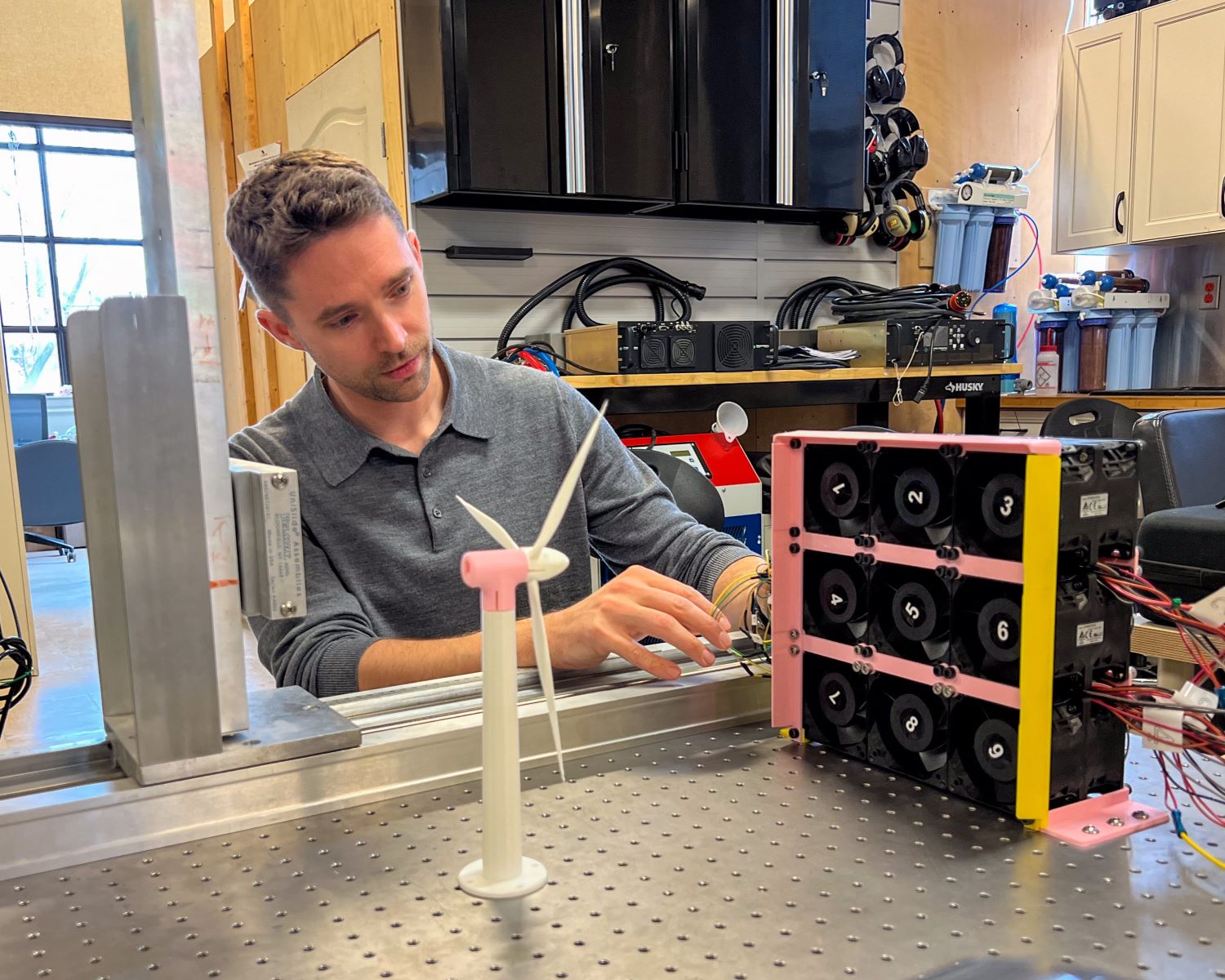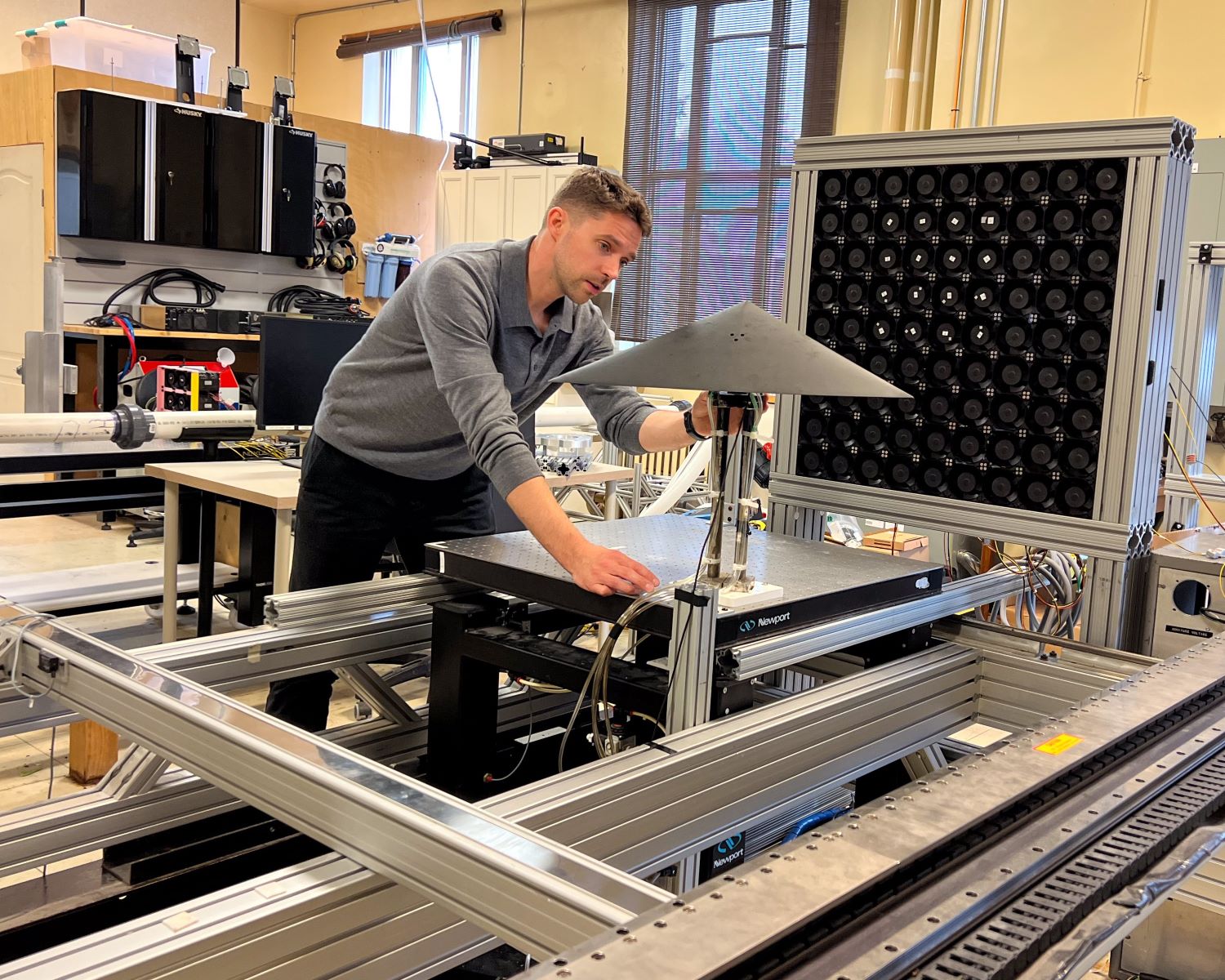
With his research focused on large-scale wind turbines and wind farms, John Kurelek is at the forefront of pioneering a new era of cutting-edge wind energy technology in an industry that is rapidly evolving.
"We’re faced with a huge challenge to reduce our CO2 emissions, which will take efforts on many, many fronts,” he says. “Central to that effort is the transition to renewable energy sources. My expertise is in wind energy, so I've accepted the challenge to contribute where I can."
An Assistant Professor in the Department of Mechanical and Materials Engineering, John Kurelek pursued his undergraduate and graduate studies at the University of Waterloo in Mechanical Engineering, and then completed a dual PhD at Delft University of Technology in Aerospace Engineering in the Netherlands. This unique opportunity proved vital to his PhD work since he gained a fresh perspective on his research methods that enhanced the skills he acquired in North America.
Kurelek explains how, throughout his time at Delft, the program was highly collaborative and centered on how research could have a broader positive impact, in both industry and society. “That experience taught me to reach beyond the purely technical side of research. I found that the European research ecosystem is very team-based and collaborative,” says Kurelek. “You are contributing to a large project that usually has multiple professors working on it, and many PhD and graduate students working together to address a very broad challenge. It was very exciting to work and succeed in an environment like that.”
Kurelek hopes to introduce these overarching elements and principles into his courses when he begins teaching at Queen’s in January 2025. He shares how he’d like to keep his collaborations and relationships ongoing with other research groups to give his students the same valuable opportunities he experienced during his graduate studies.
“As researchers, you have to push yourselves outside of your comfort zone to find what other people are working on, and how there might be some common threads that you may not have considered,” he says.
After his experience in Europe, Kurelek became a postdoctoral researcher at Princeton University, where he continues as a visiting research collaborator. He's working on starting complementary projects he spearheaded at Princeton and bringing them to Queen's.
He’s currently working on optimizing wind turbine and wind farm power outputs, which is a significant challenge due to their sheer size and the land space they require. According to Kurelek, large turbines typically need to be spaced several kilometers apart due to the aerodynamic interactions that happen between them, making space a significant concern. "There's a lot of research happening on how we can more efficiently pack wind turbines into spaces or more seamlessly integrate them with the land they occupy, which is often also used for farming and agriculture," he says.
To bring this concept to life, Kurelek and his team at Princeton created a unique, scaled-down version of a commercial wind turbine to propel their research. But, as he explains, when you scale something down, like the size of the turbine, you must scale something else up to compensate. In this case, they scaled up the density of the wind.
Using a specialized wind tunnel facility at Princeton, they used highly compressed air to increase the density of the air flow, which is a rare capability for a lab. "It unlocked a whole new area that we could explore. We replicated a full scale, hundreds-of-meters tall wind turbine in a laboratory, something very few people had achieved prior, using a model that was only 28 centimeters tall, which is quite incredible," says Kurelek.
At Queen’s he will expand on the same research, but his team will use water instead of air for the turbine. Kurelek explains that water is much heavier and denser than air.
Many of his goals at Queen’s involve helping his upcoming students succeed. “I hope to build a well-rounded research group,” he says. “I want to find students that are really passionate about working on topics they love, working with them, training them, and helping them achieve their career goals.”
"I've always wanted my research to have real impact," he says, "and I feel that I have a responsibility to make a positive contribution to society. One of the big challenges that I see, and I think where many people are focused, is how can we live more sustainably and produce energy in a way that is more environmentally responsible?"
